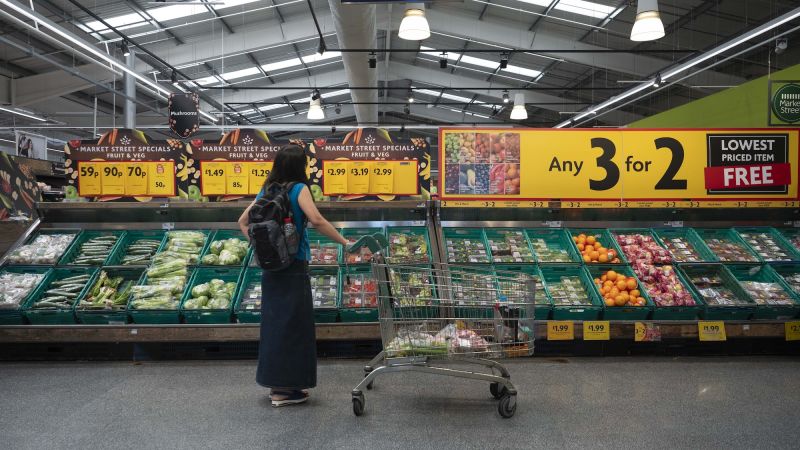The United Kingdom heavily relies on the European Union for fresh fruits and vegetables, even after leaving the bloc in 2020. The introduction of post-Brexit physical inspections of plant and animal imports from the EU is expected to impact consumers and small businesses, with higher charges on imported food products and potential price increases. This has led to concerns about border delays reducing the shelf-life of perishable products and increasing food waste.
The new regime for food imports highlights the border bureaucracy that UK and EU businesses must now navigate after Brexit. Before leaving the EU, Britain had easy access to a variety of food products from neighboring countries, along with a dependable stream of agricultural workers. However, in the current post-Brexit environment, the UK’s food supply is more vulnerable to external shocks, with labor shortages leading to crops rotting due to a lack of workers to harvest them.
The British Retail Consortium is less concerned about potential price increases due to new checks and paperwork, stating that any additional costs are likely to be minimal in comparison to the overall food sales in the UK. However, concerns remain about the smooth running of border checks to avoid any delays or availability issues. The heavy reliance on food imports from the EU, especially for fresh produce, means that any disruptions could impact the availability and prices of food for UK consumers.
The UK government estimates that the new checks will cost British businesses around £330 million annually and increase food inflation by about 0.2 percentage points over three years. However, industry groups believe the costs could be much higher, significantly raising food prices and threatening the viability of small and medium-sized enterprises. The end of free movement of EU workers post-Brexit has added to the challenges faced by UK farmers, with uncertainty over seasonal worker visas causing further concerns.
Brexit has also led to free trade deals with countries like Australia and New Zealand, giving them tariff-free access to the UK market. This has further impacted UK farmers who are already facing challenges from rising input costs and pressure from supermarkets to keep prices low. The government has launched a review to increase fairness in the supply chain for fresh produce, aiming to address issues around contractual arrangements between UK producers and retailers. Amidst Brexit-related challenges and the changing landscape of the food industry, there is a call for a long-term strategy for food that looks ahead at least 20 years to ensure stability and fairness in the sector.













